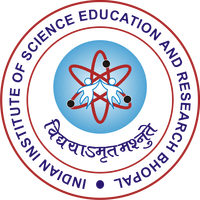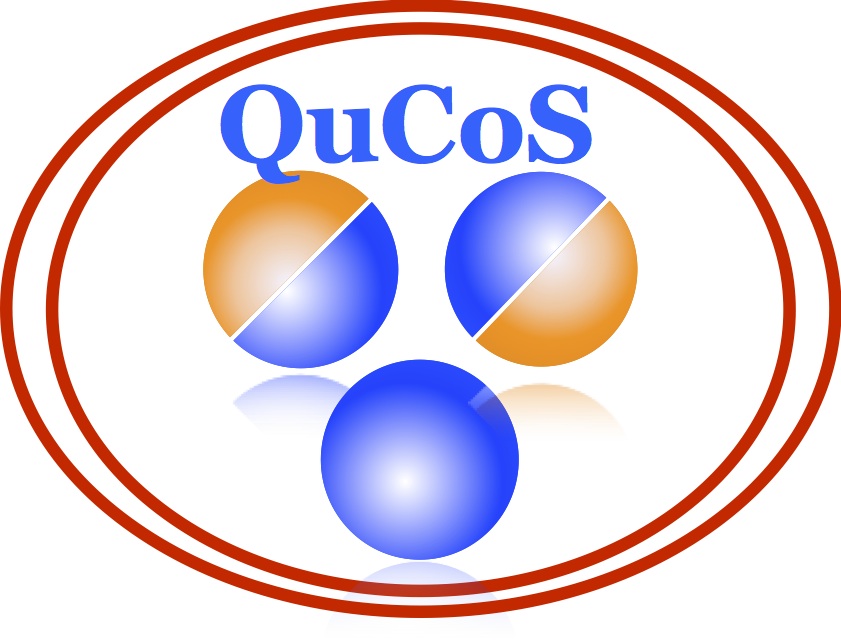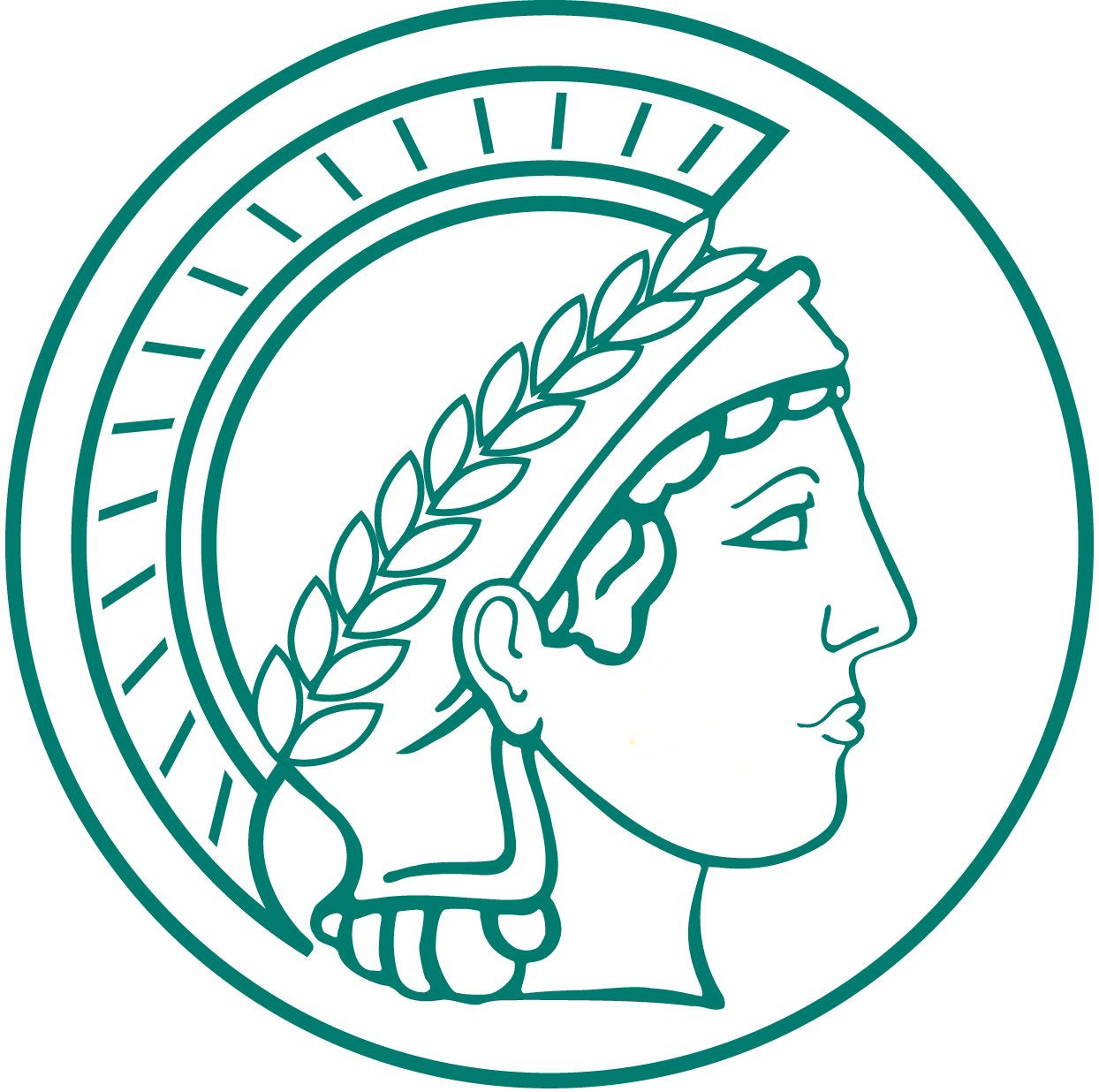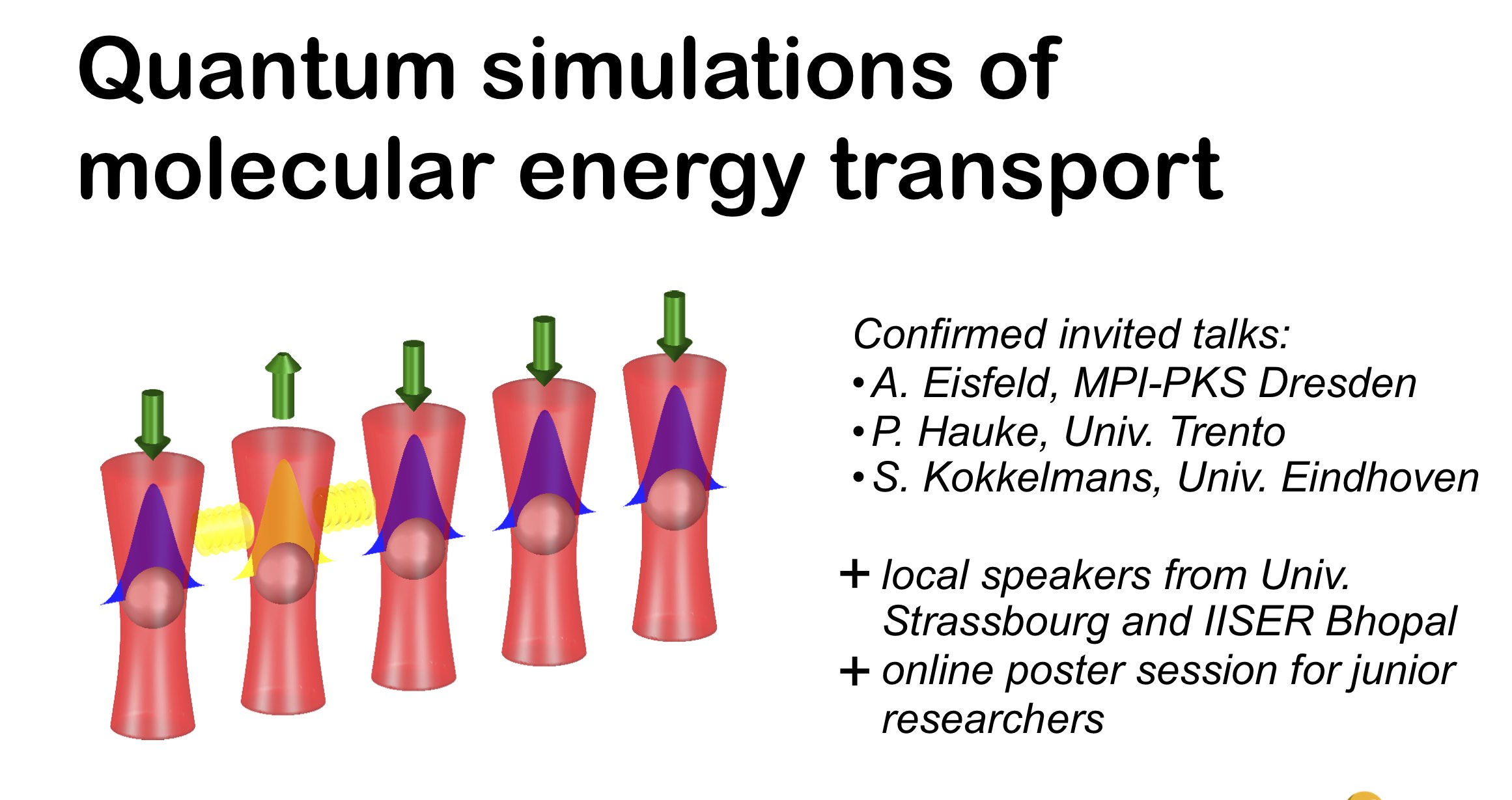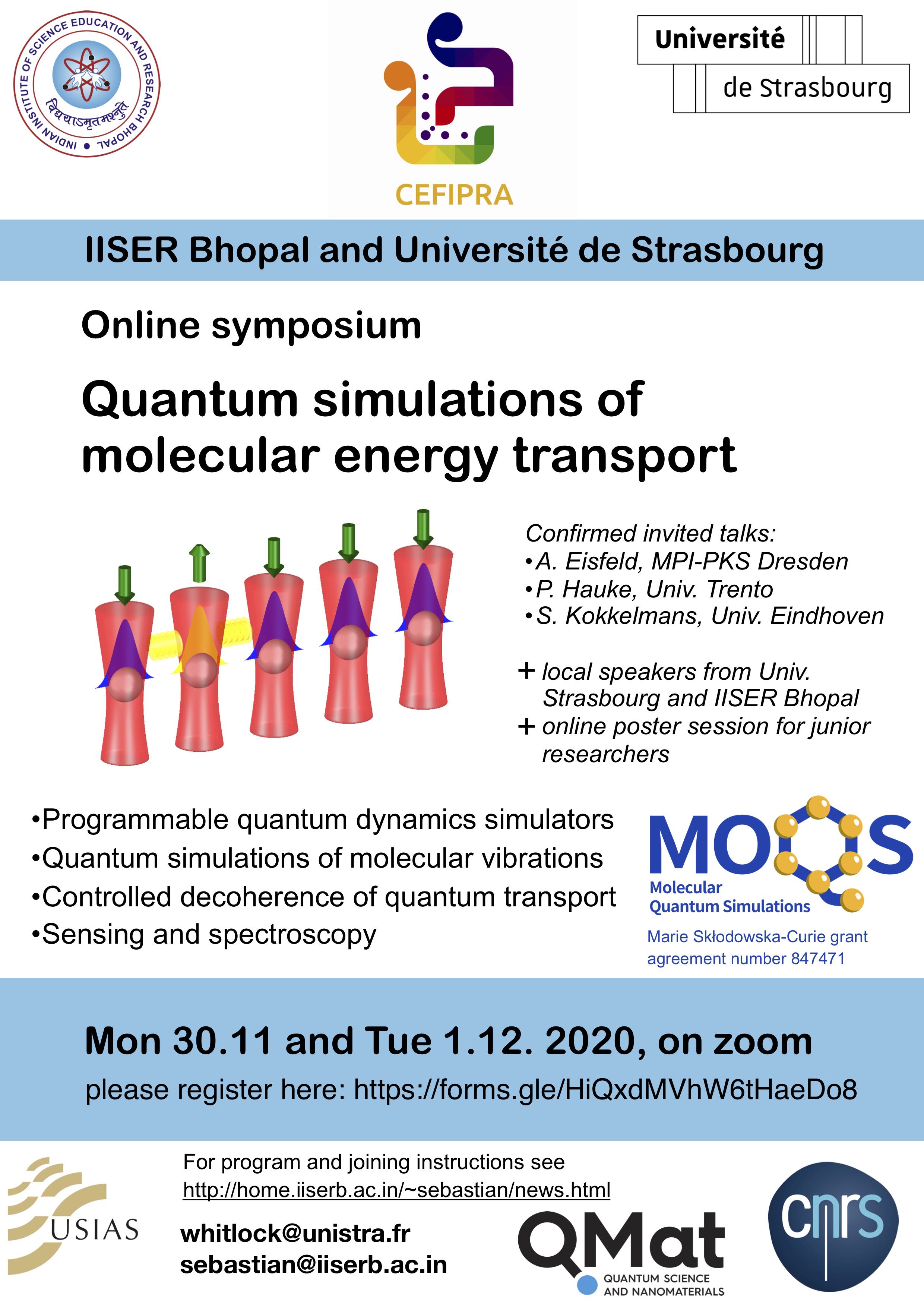NEWS:
Feb 2024
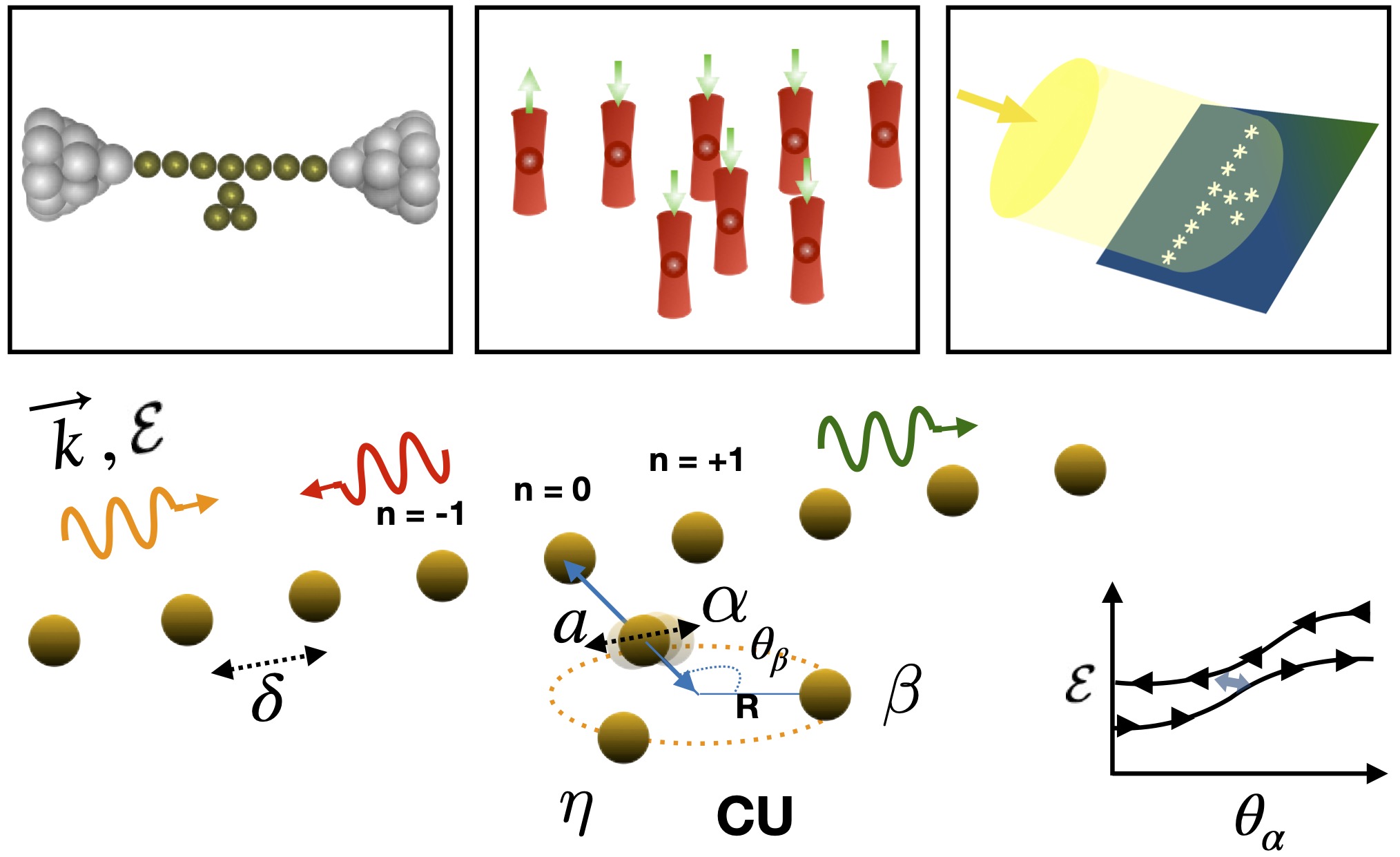
Quantum transport enabled by non-adiabatic transitions
We recently completed a major project on the control of quantum transport through a single vibrational mode, in a culmination of [this earlier article]. Thanks to Ajith Ramachandran Ajith Ramachandran Ph.D. for driving this over the finishing line. (see also online talk)
Aug 2023
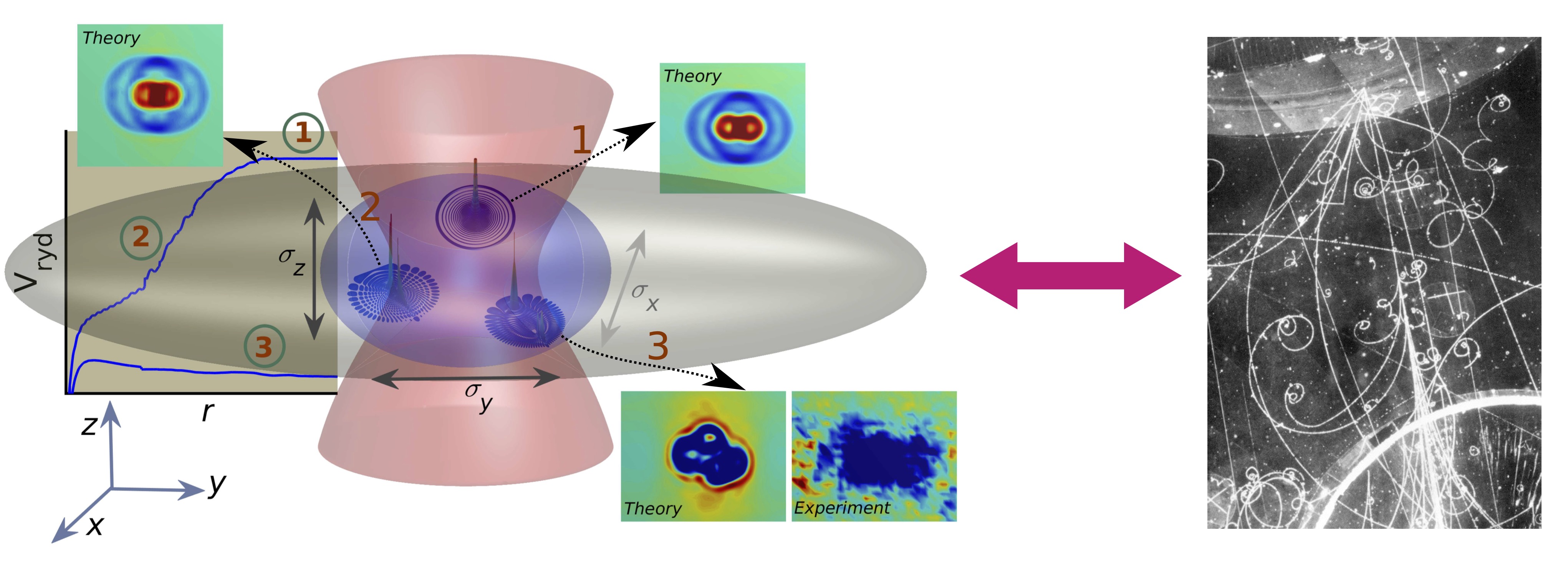
Realisation of BEC tracking chamber to monitor ultra-cold quantum chemistry
An experiment at the University of Stuttgart recently recorded the internal conversion of exotic ultra long range Rydberg molecules [1][2] through their impact on an ambient BEC. This essentially realises a tracking chamber for Rydberg chemistry, akin to bubble or fog chambers from the early days of particle physics, as has been envisaged by us [3][4] and others [5] earlier. Through an extensive numerical campaign we could help interpret the experiment, to show that the electronically excited Rydberg state transforms into a trilobite, which must loose the energy with which it is created through a novel slowdown mechanism [6], which also might resolve some confusing aspects of earlier experiments [7]. (see also online talk)
Aug 2023
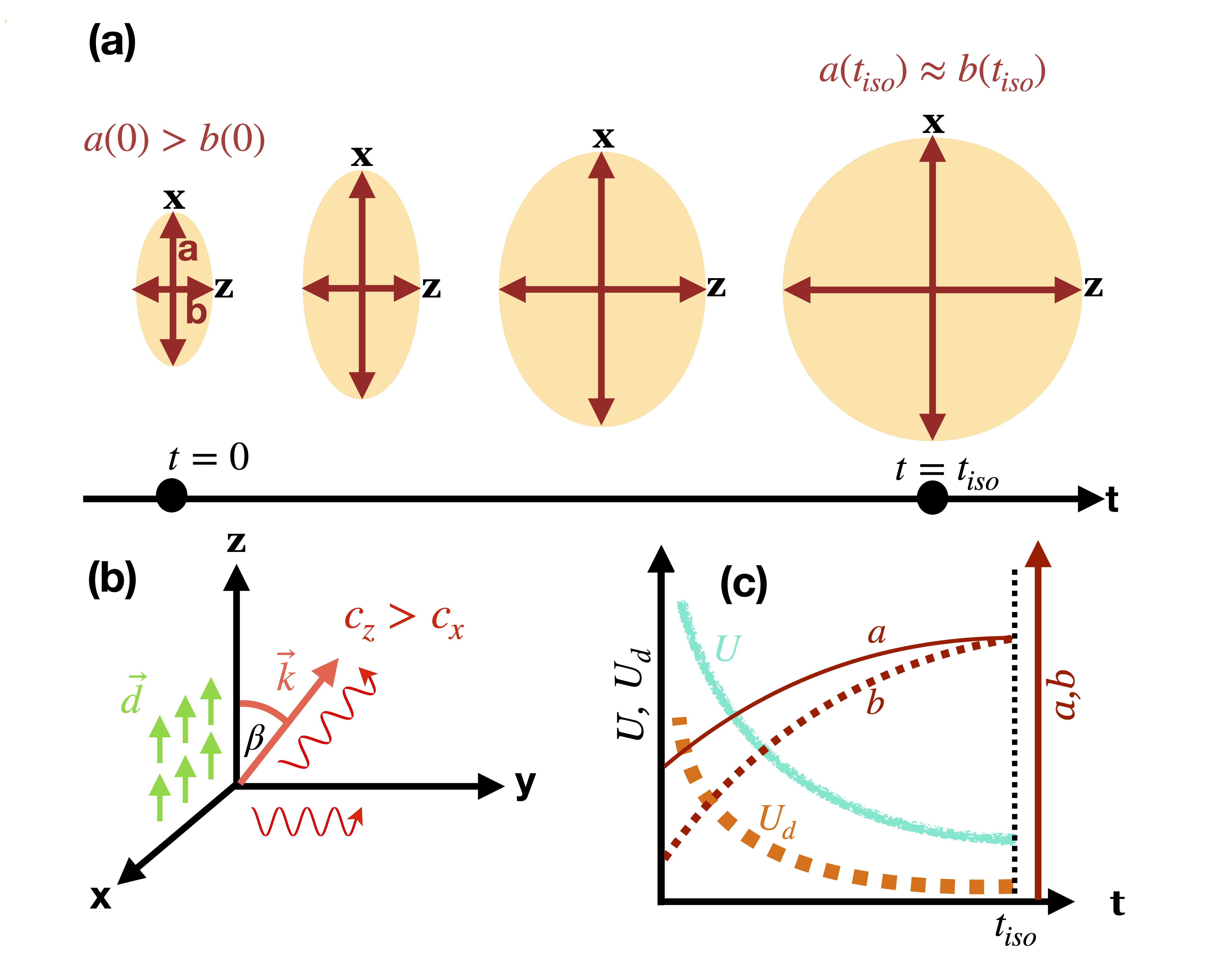
Quantum field dynamics in anisotropic spacetimes
In a collaboration with Sukanta Panda's group here at IISER Bhopal, we worked out a proposal to do analogue gravity [1] experiments using dipolar Bose-Einstein condensates. In these the speed of sound depends on the propagation direction relative to the polarisation axis, hence once can create anisotropic effective spacetimes. Such experiments can then study for example to which extent the excitation spectrum (corresponding to the cosmic microwave background) at late times remains slightly anisotropic, even though the (analogue) universe has already become isotropic [2].
Jul 2023
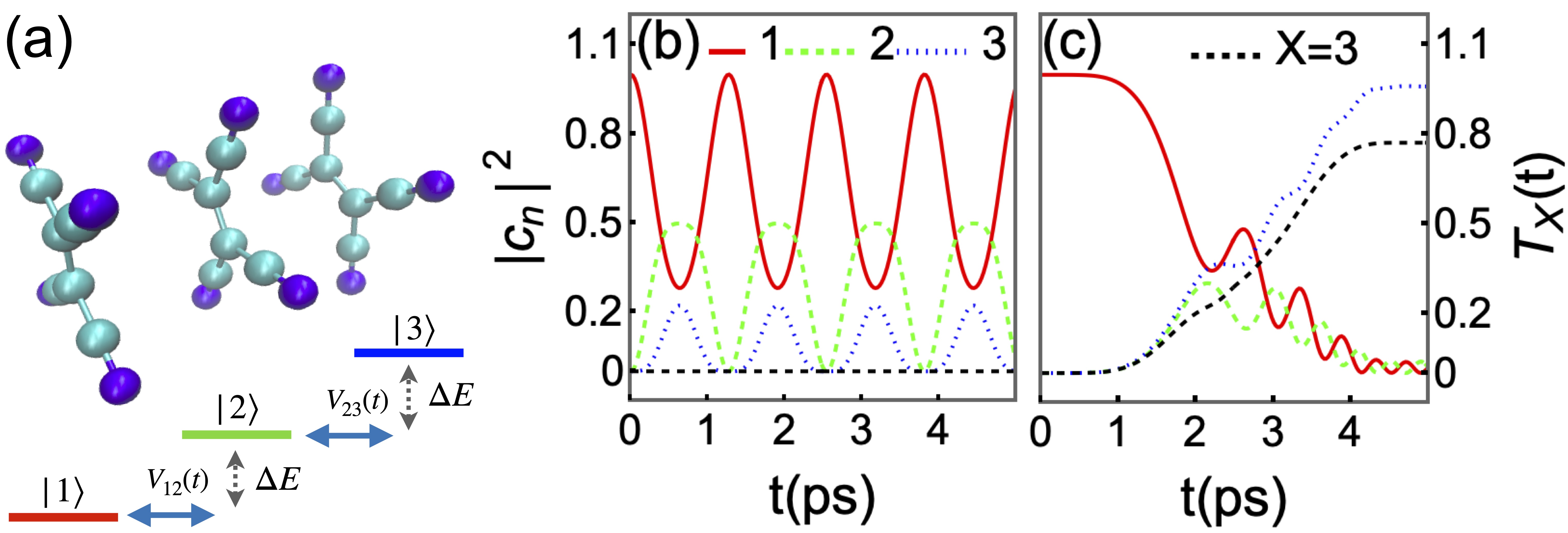
A universal measure for the impact of adiabaticity on quantum transitions
Adiabaticity is crucial for our understanding of complex quantum dynamics and thus for advancing fundamental physics and technology, but cannot yet be quantified in complex but common cases where dynamics is only partially adiabatic, several eigenstates are simultaneously populated and transitions between non-eigenstates are of key interest. We construct a universally applicable measure that can quantify the adiabaticity of quantum transitions in an arbitrary basis. Our measure distinguishes transitions that occur due to the adiabatic change of populated system eigenstates from transitions that occur due to beating between several eigenstates and can handle non-adiabatic events. While all quantum dynamics fall within the scope of the measure, we demonstrate its usage and utility through two important material science problems - energy and charge transfer - where adiabaticity could be effected by nuclear motion and its quantification will aid not only in unraveling mechanisms but also in system design, for example of light harvesting systems. [1] We have worked this out together with the ab-initio theory group of Varadharajan Srinivasan here at IISER Bhopal, who did the demonstration that our measure can be applied in a DFT/Material Science context.
Oct 2022
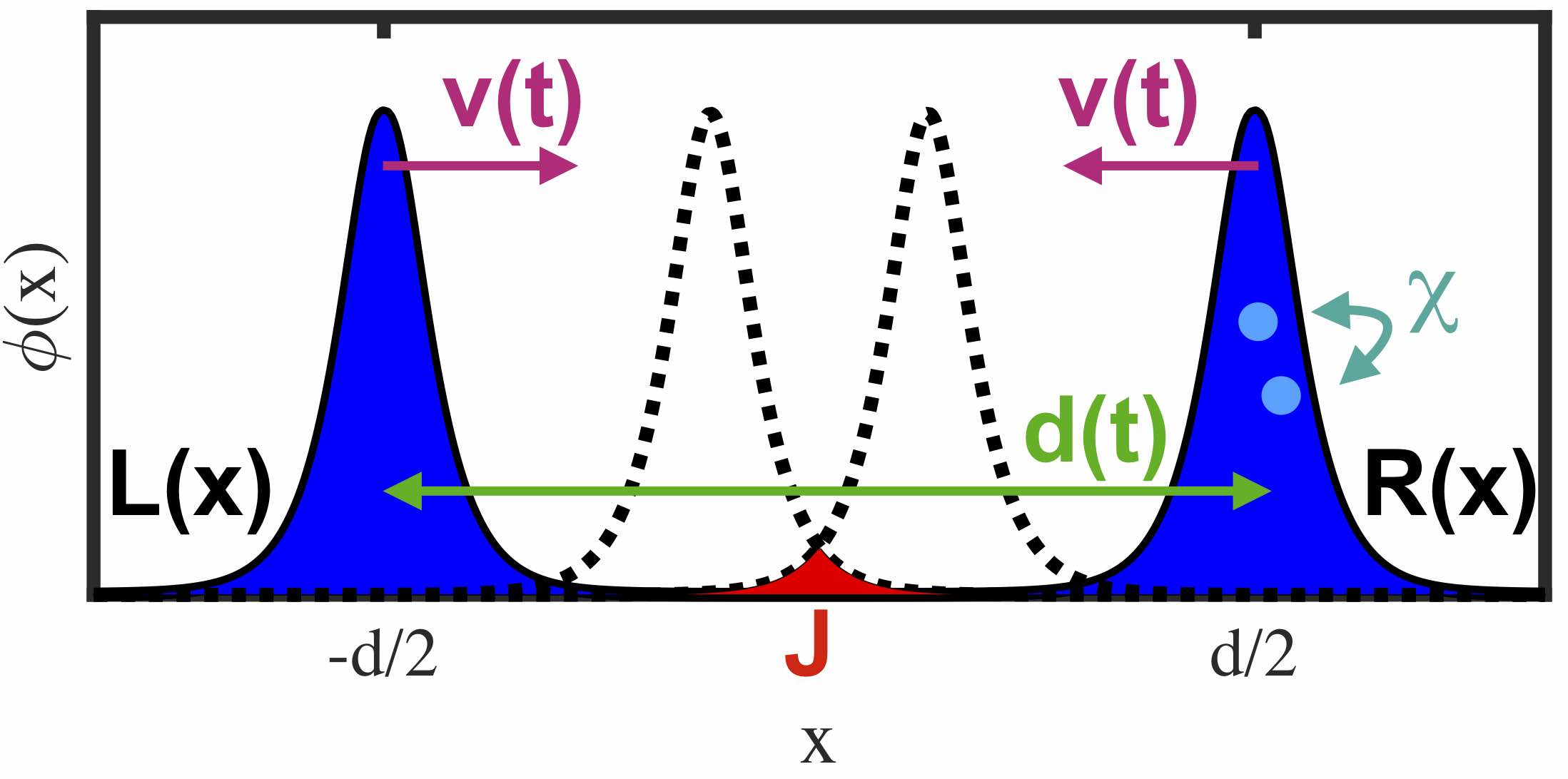
Quantum soliton collisions
The collisions of solitons in Bose-Einstein condensates are an interesting example of quantum many-body dynamics, actively explored in experiments such as [1][2][3][4]. Over the years, there has been a mounting body of evidence [5][6][7] that commonly employed mean-field theory is not able to explain some essential feature of such experiments, such as an apparent predominance of repulsive interactions. Continuing these works, we earlier demonstrated that thermally accelerated phase diffusion can invalidate the mean-field picture before the onset of the first collisions, and then atom transfer during the collision then makes it even less applicable through the generation of mesoscopically entangled states [8]. More recently we also found out why solitons first have to fragment before atoms can transfer [9] and demonstrated that they then form a hyper-entangled state after collision [10]. (see also online talk)
Aug 2022
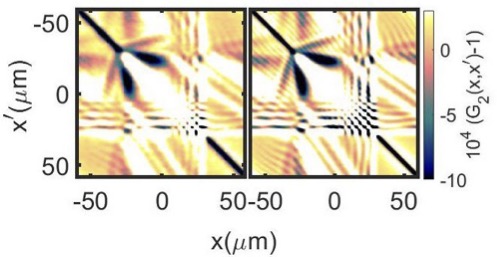
Analogue Hawking radiation despite atomic losses
We recently continued some of our earlier research [1] on analogue gravity [2]. Our earlier work had pointed out that the regime of strongest analogue Hawking radiation (AHR) is also plagued by strongest atomic losses. Now we show that when observing AHR through density-density correlations, as done in experiments [3], these correlations are actually strengthened when losses are present [4].
Jul 2022
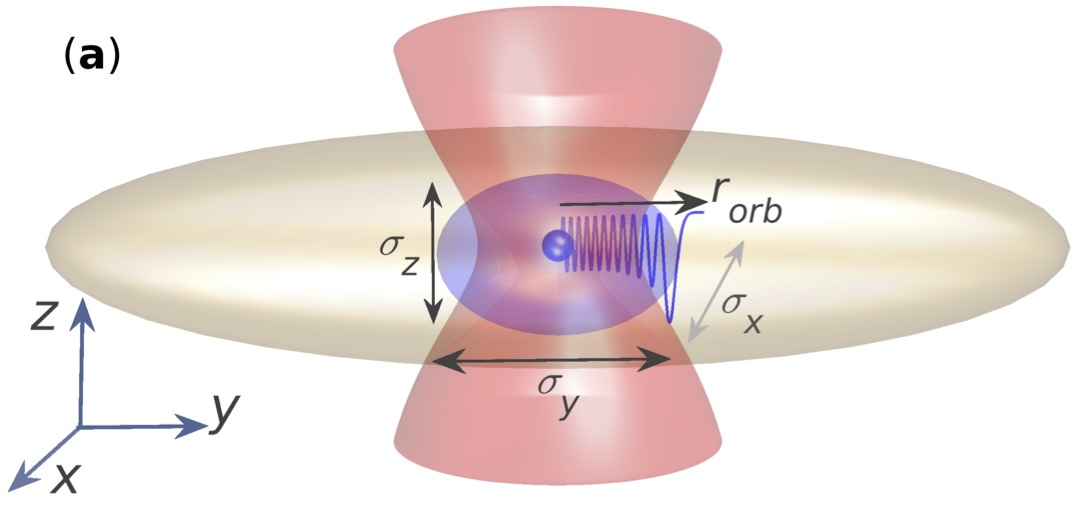
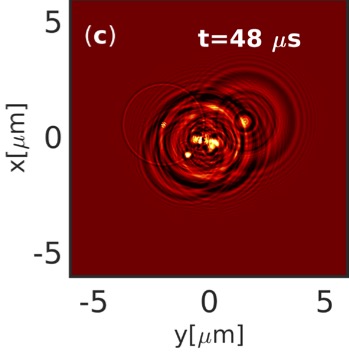
Dynamics of atoms within atoms
Recent experiments with Bose-Einstein condensates (BECs) have entered a very exotic regime combining an extreme state of matter (BEC) with extreme atoms (Rydberg atoms) [1]. In that case one can have the intriguing scenario that thousands of ground-state condensate atoms fill the Rydberg-electron orbit. These are then pushed around by that single Rydberg electron, leading to "Dynamics of atoms within atoms". We simulated the resulting ripples in the condensate density as shown in the figures above, and found that these should be resolvable experimentally, will not invalidate mean field theory, and are not sensitive to complex and unknown details of the interaction potential between Rydberg and condensate atoms [2]. (see also online talk)
Apr 2022
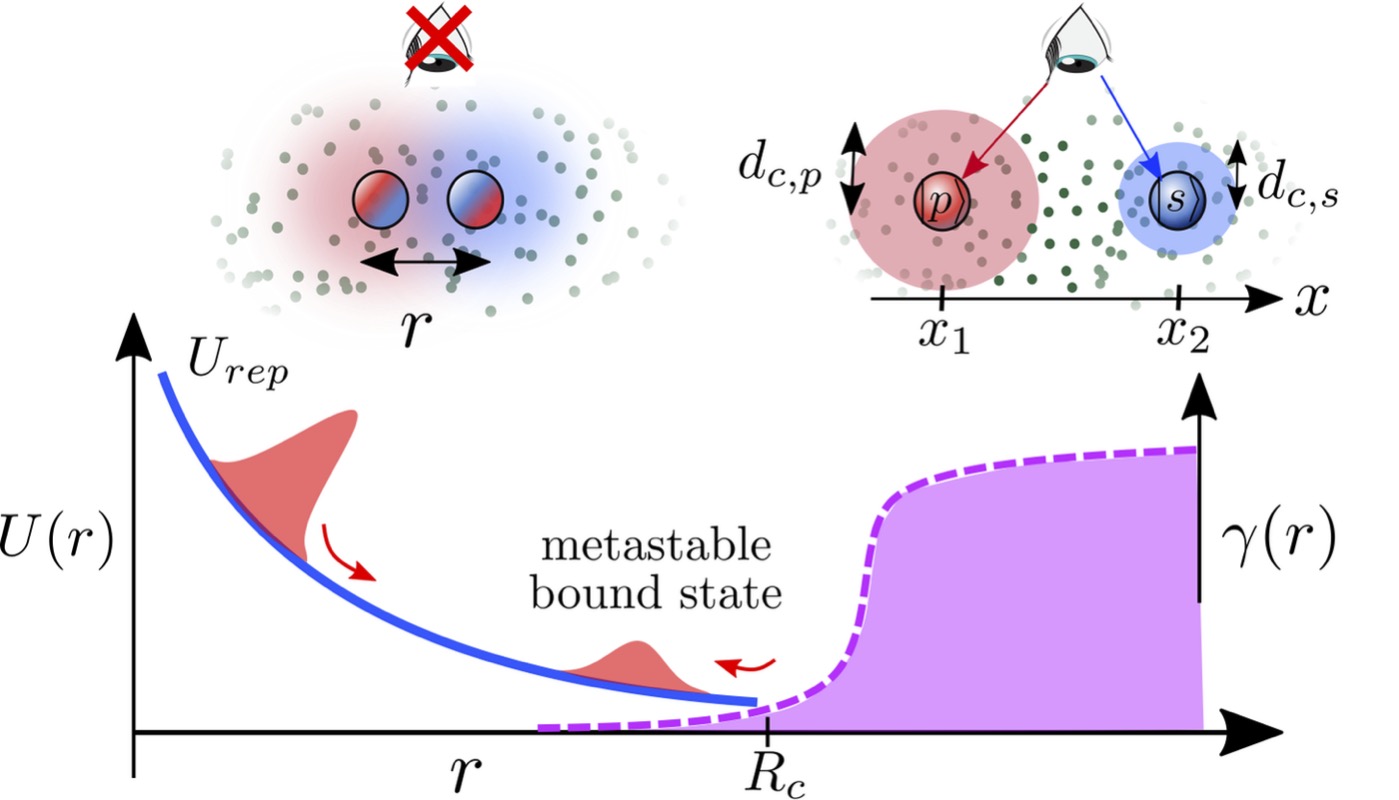
Trapping and binding through dephasing
Binding and trapping of particles usually rely on conservative forces, described by unitary quantum dynamics. We show that both can also arise solely from spatially dependent dephasing, the simplest type of decoherence. This can be based on continuous weak position measurements in only selected regions of space, for which we propose a practical realisation. For a single particle, we demonstrate a quantum particle-in-the-box based on dephasing. For two particles, we demonstrate their binding despite repulsive interactions, if their molecular states are dephased at large separations only. Both mechanisms are experimentally accessible, as we show for an example with Rydberg atoms in a cold gas background [1].
Nov 2020
In order to kick off an Indo-French co-funded collaboration [thanks to CEFIPRA] with the group of Prof. Shannon Whitlock in Strassbourg
[link] involving "Quantum simulations of molecular energy transport", we will
hold an online symposium on this topic on ZOOM, on Monday 30th Nov Tuesday 1st Dec, with the following
program.
You can download the full resolution flyer above by clicking on the thumbnail.
If you are interested
PLEASE REGISTER HERE
by 29th Nov (zoom link will only be send to email addressed collected in that form).
We shall update this page with a link to the program shortly.
April 2020
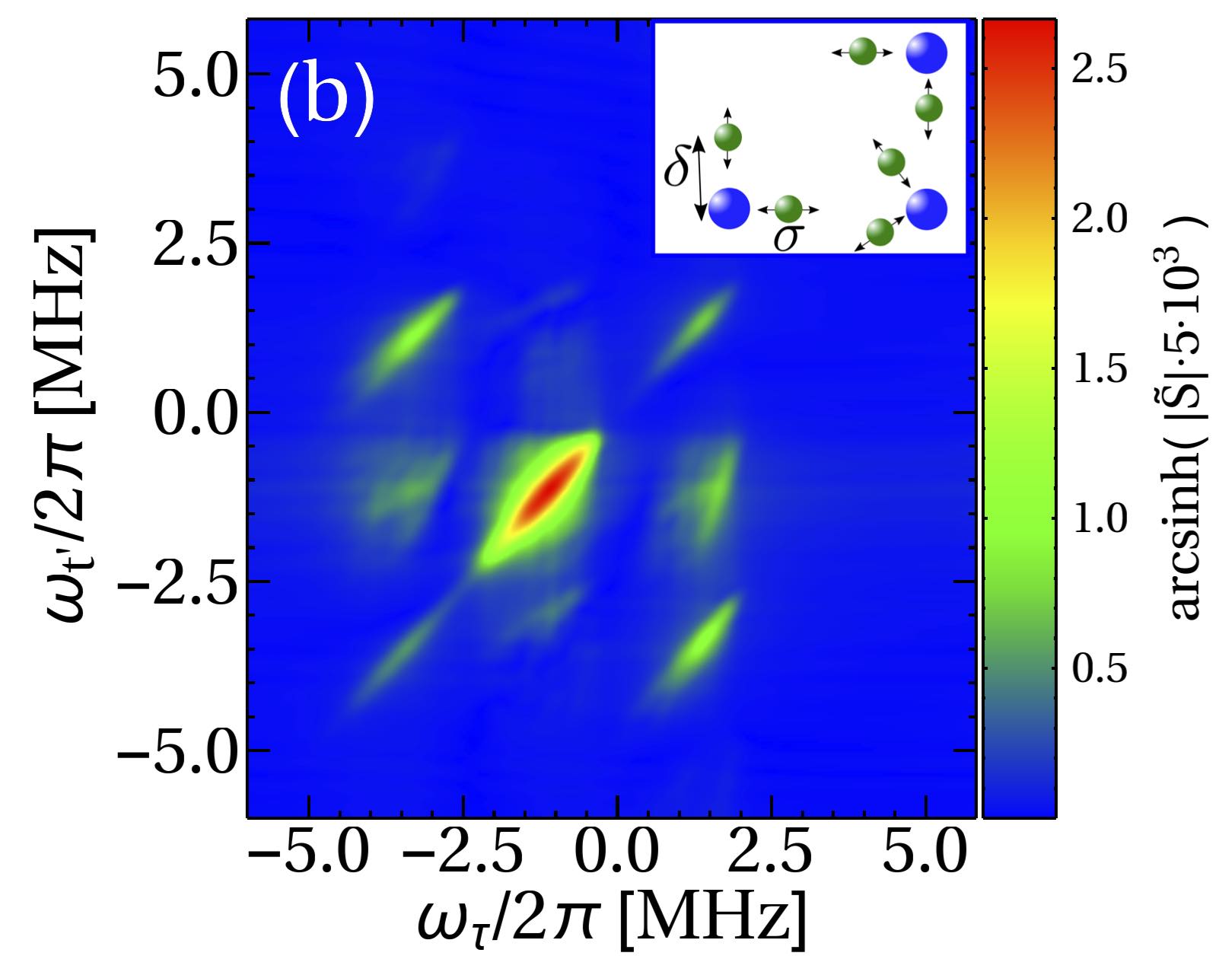
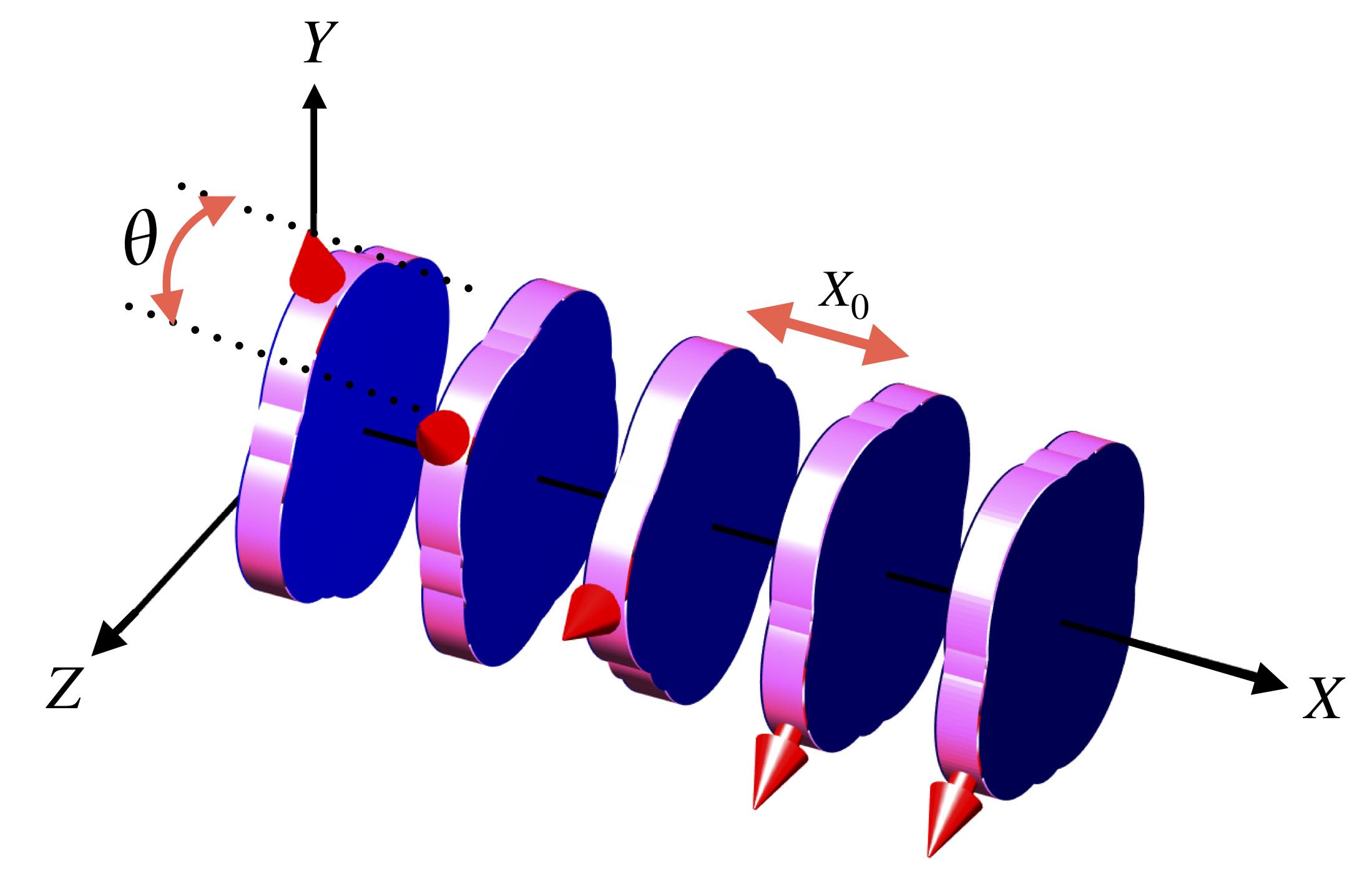
Quantum simulations: Rydberg atoms versus molecules
As discussed in [1] or [2] and here, interesting quantum simulation opportunities can be based on the fact that highly excited Rydberg atoms
and complex bio-molecules share a similar mechanism allowing energy transport by dipole-dipole interactions, but in the former this remains pristinely quantum coherent [3],
while in the latter it strongly suffers from decoherence through molecular vibrations [4].
We recently exploited the underlying analogy in two complementary directions: By porting the involved technique of two-dimensional spectroscopy that is used to explore molecular aggregates from the
optical domain to that of micro-waves and Rydberg atoms [5] (left figure) and by showing that adiabatic excitation transport which we have shown prominently
for mobile Rydberg atoms [6] may also be exploited in some particularly coherent molecular aggregates [7] (right figure).
(see also online talk)
March 2020
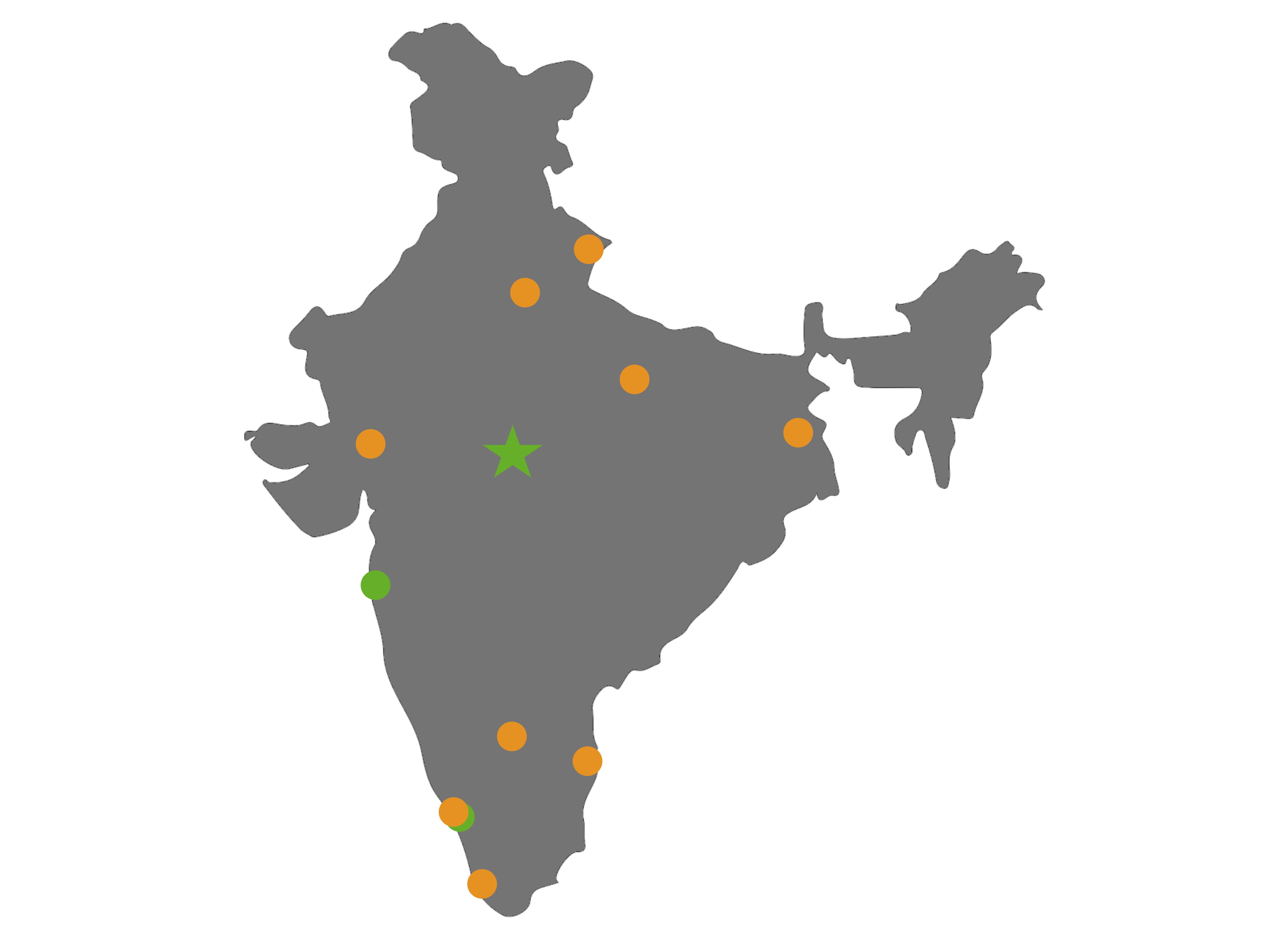
Theoretical physics via email
As the whole planet is in an exceptional state due to the virus, we are running a theoretical physics group via email. Thanks to all students and post-docs for keeping up their good work even under these difficult circumstances. On this occasion: You are at all the orange dots.
February 2020
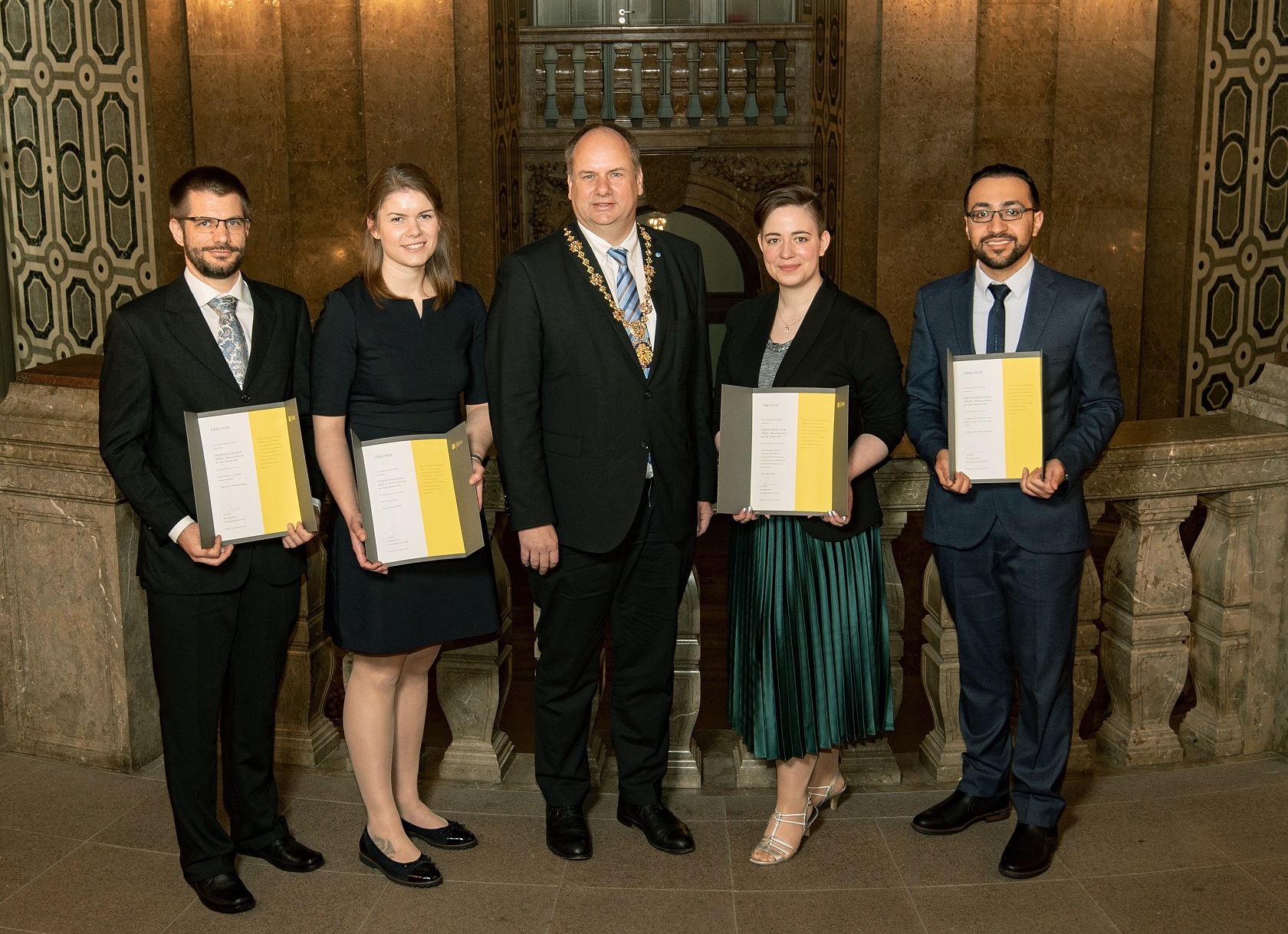
From left to right: Sebastian Wüster, Gesa Schirren, Major of Dresden Dirk Hilbert,
Juana Mai and Dr. Nicola Mitwasi. Image (c) Jürgen Männel
Dresden Excellence Award
We are very grateful to the city of Dresden, Germany, for recognizing the interest of our research on quantum simulations with the "Dresden Excellence Award" for the year 2019, see here for more description (albeit in German). Thanks also to all past and present group-members and collaborators, without whom this would not have been possible.
